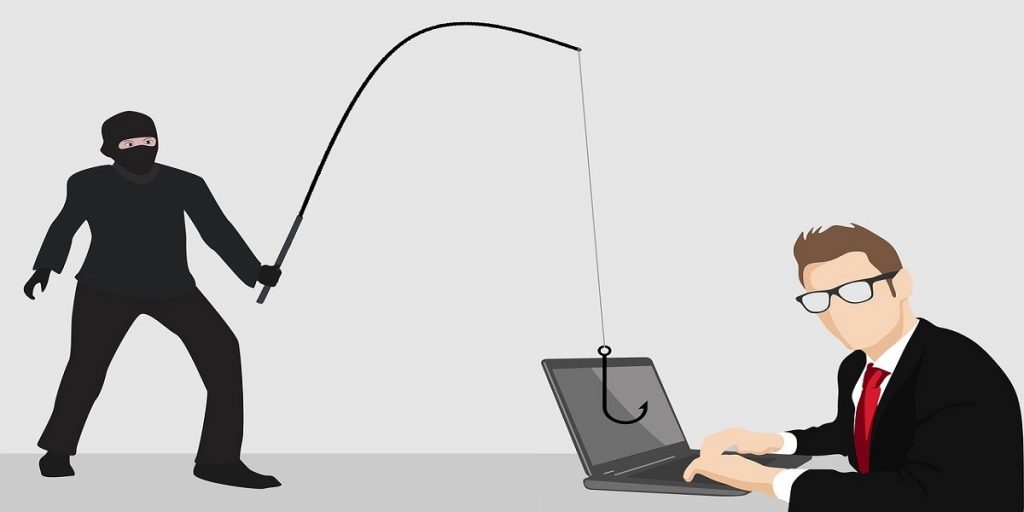During the COVID-19 pandemic, shifting the traditional classroom teaching and learning to online learning was a great challenge for management, teachers, and students. Many of the educational institutes were not prepare for shifting to online learning. When the issue of online classes and lectures was resolved, the next issue was exams. Taking online exams on such a larger scale without enough preparation was another challenge. According to experts of dissertation writing services, the biggest hindrance in conducting exams online was the unavailability of proper cybersecurity measures.
Cyber Security Threat:
A cybersecurity danger alludes to any conceivable malevolent assault that tries to unlawfully get information, disturb advanced tasks, or harm data. Cyber dangers can start from different entertainers, including corporate government agents, hacktivists, fear-monger gatherings, unfriendly country states, criminal associations, solitary programmers, and disappointed representatives. Cyber attacks are a serious threat to the university and student data and students’ privacy.
Reasons for Cyber Attack:
There can be many motives behind the cyberattack. The three major reasons for which hackers attack the universities data are
- Money
- Sensitive personal data
- Accessing Research Data
How It Occurs:
Hackers attack the information system of universities by sending Malware. When individual clicks on the link or opens the attachment, dangerous software is installed that hacks the system, and hackers get complete access to the system. Another way of attacking the systems in Dos (Denial of Services) where a network fails to respond.
Universities and other educational institutes are always easy targets for the cyber attack. The educational industry is always given less importance and is ranked lower, due to which they have to first deal with other major problems like budget and give less importance or ignore cybersecurity. In universities, students and staff are provided access to different apps and portals. The main aim of administration is to provide students easy access to relevant information. This ease of access becomes an opportunity for attackers.
In universities providing cyber education to every student is quite difficult. The number of students enrolled is in thousands and every year there is a new batch of students in each department. Everyone is associated through their workstations, work areas, telephones, and tablets. Every gadget is a chance. So students easily fall prey to cyber-attack. With regards to social designing strategies, closely following, or man-in-the-center assaults, you don’t get a more extravagant climate than a school grounds. Outsiders enter effectively, go undetected, and can plant USBs, catch traffic, or effectively enter labs and examination territories.
Preventive Measures:
No one is assured that how long this COVID pandemic will last and when the educational institutes will reopen properly with full students’ attendance. So, the students, teachers, and university IT and security departments need to take serious initiatives for securing the data and network from cyber-attacks. All kinds of threats must be identified. Any illegal or unauthorized access to the system or network must be reported and handled properly. All sensitive information and data must be protected properly. Hackers can use any data for a criminal purpose, so it is necessary to know which information can be used by cybercriminals for any crime.
The risk of cyber-attack must be calculated and the effectiveness and potential of the cybersecurity system must be checked. The most effective and highly recommended method for avoiding a cyber-attack is using two-factor authentication. Two-factor authentication consists of two steps. At the time of logging into the account, the user has to enter the password and if the password is right he has to enter the code received through SMS or email. This additional step of code saves the user from account hacking.
Secure Password Theft and Cracking:
A portion of the client will in general utilize a secret phrase that is short and simple to recollect that, they will, in general, compose someplace in the scratchpad or tacky notes in the PC or in journals which is certainly not decent security rehearses embraced by individuals. Because of this, a considerable lot of the username and passwords get taken and fall into the possession of aggressors. Along these lines, try not to utilize similar passwords wherever for your benefit and strictly embrace the approach of 2Factor-Authentication which comprise of Password and OTP or Password and Biometrics.
What Will Be The Future of Education?
As of now, one is assured about the future circumstances and the end of COVID. The current circumstances show that online learning and exams will become a part of our education system. This demands that there should be a strong protection system against cyber-attacks so that the education sector specifically universities must be safe.



